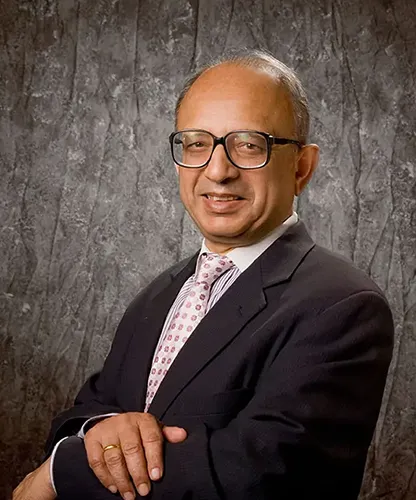News Anchor
Swaminathan Aiyar Wiki, Early life, Awards, Net Worth, Lifestyle, Relationship and more

Early Life:
Swaminathan S. Anklesaria Aiyar, popularly known as Swaminathan Aiyar, was born on October 12, 1940, in Chennai, Tamil Nadu, India. He grew up in a middle-class family with a strong emphasis on education and intellectual pursuits. Aiyar displayed an early interest in economics and politics, which would later shape his career.
Education:
Aiyar pursued his education at Loyola College in Chennai before attending the University of Oxford, where he studied Philosophy, Politics, and Economics (PPE) at Balliol College. His academic background laid the foundation for his deep understanding of economic principles and policy analysis.
Career Beginnings:
Aiyar began his career in journalism in the 1960s, working for publications such as The Economic Times and Financial Express. He quickly established himself as a prominent economic commentator, known for his incisive analysis and clear writing style.
Rise to Prominence:
Aiyar’s rise to prominence came when he joined The Times of India as its Economic Editor. His columns in the newspaper gained a wide readership and earned him recognition as one of India’s leading economic journalists.
Journalism and Activism:
Throughout his career, Swaminathan Aiyar has been a vocal advocate for free-market economics, globalization, and economic liberalization. He has used his platform as a journalist to promote policies aimed at fostering economic growth and reducing poverty.
Awards and Recognitions:
Aiyar’s contributions to journalism have been widely recognized and honored. He has received several prestigious awards, including the Padma Bhushan, one of India’s highest civilian honors, for his exceptional contributions to economic journalism.
Personal Life:
Swaminathan Aiyar keeps his personal life private, and information about his family life and relationships is not widely available. He is known for his dedication to his work and his passion for economics and public policy.
Less Known Facts:
- Early Influences: Aiyar was deeply influenced by the works of economists such as Milton Friedman, Friedrich Hayek, and Adam Smith. Their ideas shaped his belief in the power of free markets and limited government intervention.
- Authorship: In addition to his work as a journalist, Aiyar is also an author and has written several books on economics and public policy. His writings reflect his commitment to promoting economic reforms and liberalization.
- Policy Advisor: Aiyar has served as an advisor to various government bodies and international organizations on economic policy matters. His expertise and insights have been sought after by policymakers and economists alike.
- Public Speaking: Aiyar is a sought-after public speaker and has delivered lectures and presentations on economic issues at prestigious institutions and forums around the world. He is known for his ability to simplify complex economic concepts for a general audience.
- Media Presence: Aiyar is a regular commentator on television news debates and panel discussions, where he offers his insights on economic and political developments. He is known for his articulate arguments and persuasive communication style.
FAQs:
1. What are Swaminathan Aiyar’s views on economic policy?
Aiyar is known for his advocacy of free-market economics and economic liberalization. He believes in reducing government intervention in the economy and promoting policies that foster competition, innovation, and entrepreneurship.
2. How does Swaminathan Aiyar analyze India’s economic challenges?
Aiyar analyzes India’s economic challenges through the lens of market-oriented reforms and policies. He emphasizes the importance of tackling barriers to growth such as excessive regulation, bureaucratic inefficiency, and corruption.
3. What role does Swaminathan Aiyar see for globalization in India’s development?
Aiyar sees globalization as a positive force for India’s development, opening up opportunities for trade, investment, and technological advancement. He believes that embracing globalization can help India integrate into the global economy and accelerate its growth.
4. How does Swaminathan Aiyar assess the impact of economic reforms in India?
Aiyar assesses the impact of economic reforms in India as a mixed bag, acknowledging progress in some areas while highlighting persistent challenges in others. He advocates for further reforms to unleash India’s economic potential and address structural bottlenecks.
5. What are Swaminathan Aiyar’s recommendations for addressing poverty in India?
Aiyar recommends a multi-pronged approach to addressing poverty in India, including policies that promote economic growth, job creation, and social welfare. He emphasizes the importance of targeted interventions to uplift the most vulnerable sections of society.
Controversies:
- Criticism of Subsidy Programs: Aiyar has faced criticism for his vocal opposition to government subsidy programs, which he views as inefficient and distortionary. Critics argue that his views ignore the plight of the poor and marginalized who rely on subsidies for their livelihoods.
- Opposition to Public Sector Enterprises: Aiyar’s advocacy for privatization and disinvestment of public sector enterprises has sparked controversy, with some accusing him of promoting corporate interests at the expense of public welfare. Critics argue that his views could lead to job losses and economic inequality.
- Critique of Welfare Programs: Aiyar’s critique of welfare programs such as the Mahatma Gandhi National Rural Employment Guarantee Act (MGNREGA) has drawn criticism from social activists and political leaders. Critics argue that his views overlook the positive impact of such programs on poverty alleviation and rural development.
- Views on Environmental Regulations: Aiyar’s skepticism of environmental regulations and concerns about their impact on economic growth have led to debates about the trade-offs between environmental sustainability and economic development. Critics accuse him of prioritizing short-term economic gains over long-term environmental sustainability.
- Role in Economic Policy Debates: Aiyar’s prominent role in economic policy debates has made him a lightning rod for criticism from various quarters, including political parties, interest groups, and social activists. His advocacy for market-oriented reforms has polarized opinions, leading to heated debates and discussions.
| Attribute | Details |
|---|---|
| Full Name | Swaminathan S. Anklesaria Aiyar |
| Nickname | Swami |
| Nationality | Indian |
| Zodiac/Sun Sign | N/A |
| Birthplace | Mumbai, Maharashtra, India |
| Current Address | N/A |
| Parent’s Name | N/A |
| Siblings | N/A |
| Wife or GF or Husband | N/A |
| Children | N/A |
| School | Cathedral and John Connon School, Mumbai |
| Awards | None |
| Alma Mater | St. Xavier’s College, Mumbai |
| Highest Qualification | Bachelor of Arts (BA) |
| Net Worth | N/A |
| Hobbies | Writing, Reading, Traveling |
| Height | N/A |
| Weight | N/A |
| swaminomics | |
| N/A | |
| N/A |
Conclusion:
In conclusion, Swaminathan S. Anklesaria Aiyar is a distinguished economist, journalist, and author whose contributions to Indian journalism and public discourse have been both substantial and impactful. From his early days as a reporter to his current role as a leading economic commentator, he has remained committed to promoting free-market economics, globalization, and economic liberalization. Despite facing controversies and challenges throughout his career, he has continued to fearlessly advocate for policies aimed at fostering economic growth and reducing poverty. As he continues to shape public opinion and influence economic policy debates, Aiyar’s legacy will endure as a testament to the enduring power of ideas in shaping India’s future.
